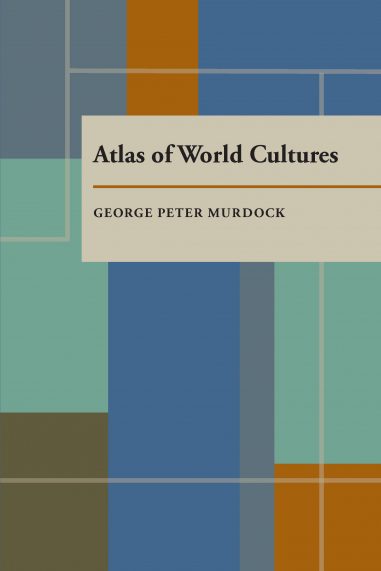

Paperback $45.00
Request Exam or Desk Copy. Request Review Copy
Atlas of World Cultures
The information and suggested research techniques contained in this volume will be invaluable to comparativists in anthropology, history, political science, psychology, sociology. Most important, it offers a simple method for choosing a valid sample of the world's known societies for cross-cultural research. . . . George Peter Murdock, who founded the journal Ethnology and the Cross-Cultural Cumulative Coding Center at the University of Pittsburgh, is a pioneering figure in cross-cultural research.

